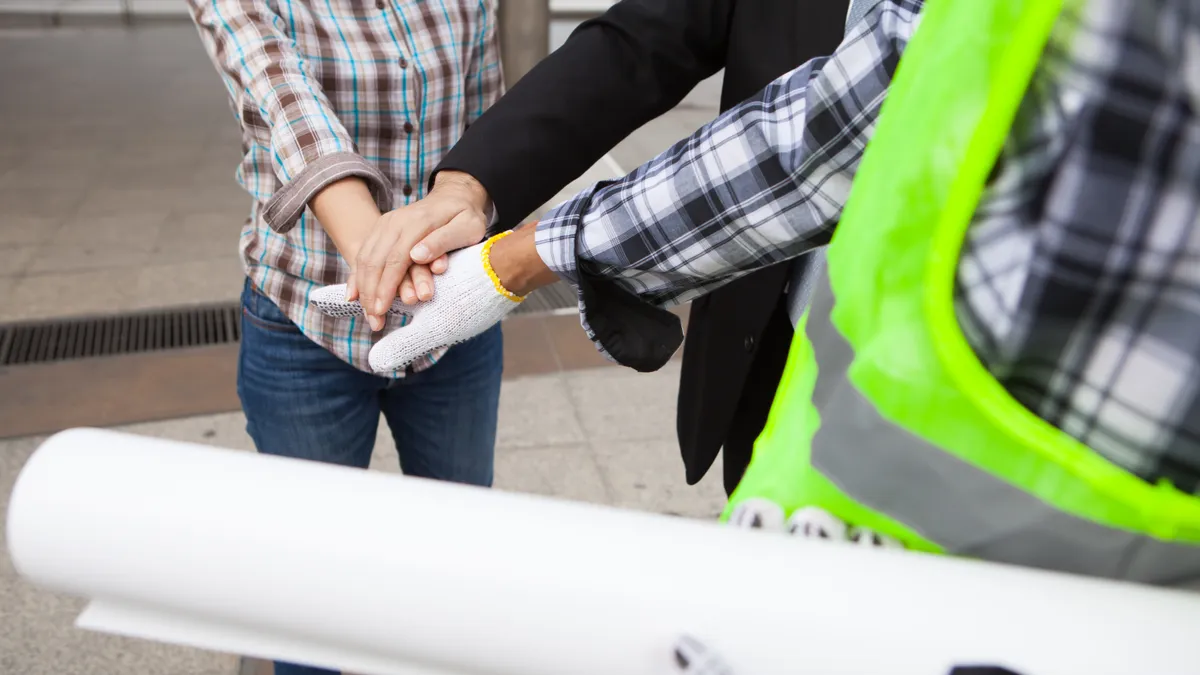Tyler Jaggers realized he'd had it with San Jose after ordering what amounted to a $20 fast food meal from Johnny Rockets.
"Because of that one lunch, I said 'This is war,'" Jaggers said. At the time, he was making close to $10 per hour; refueling with a burger, fries and a milkshake cost two hours of labor. For Jaggers, the value proposition of the Bay Area was low. He began learning to code and landed a job teaching programming, with the plan to eventually leave the area.
Spurred by the disruption of the pandemic and the increased acceptance of remote work, Topeka, Kansas, and a growing handful of other mid-sized cities are betting on workers like Jaggers — those who have grown disenchanted with the high cost and everyday annoyances of large, densely populated areas like the Bay Area, New York and Los Angeles. Offering incentives like cash, free memberships to co-working spaces and free coffee for a year, these programs are successfully luring new residents.
In October 2020, Jaggers took advantage of the Choose Topeka program, which cut him a check for $10,000 soon after he bought a house in the city — a three-bedroom house for $47,000, to be specific. While it was a fixer-upper, the low price tag allowed Jaggers to put around $100,000 into upgrades and renovation. The check from the city nearly covered his roof replacement.
In San Jose, "I was nowhere near budget," he said. Add that to being on top of his neighbors in a one-bedroom apartment — hearing them yelling through the wall — and the decision to relocate was easy.
Jaggers said he didn't know what to expect in terms of a welcome from locals, but his reception has been warm. "People are generally positive," he said. "I get more smiles here."
Back to the land
"I think what's maybe most interesting about this period that we're living through is it's sort of a revolution in personal preference," Evan Hock, co-founder of product at MakeMyMove, a site that connects remote workers with cities offering relocation incentives, told HR Dive. For many people, large cities have become nearly unlivable. "They're crowded, they're expensive, it's difficult to get involved in the local community," Hock said.
With housing prices appreciating at record rates and population density causing concerns about the spread of COVID-19, leaving the big city hasn't looked so appealing in decades.
"I think historically that communities have lost populations simply because people have had to move to find jobs," Hock said. "They were migrating towards opportunity. Now that these workers can kind of live wherever they want, they're making the choice based on their desired lifestyle independent of their earning potential."
Topeka pops up repeatedly as one of the best mid-sized cities in which to live. A recent report from Remote, which connects employers with remote workers, ranked Topeka #35 out of its top 100 global destinations to work remotely. Its incentives for relocation, modern internet infrastructure and "openness" (defined by social tolerance and government transparency) scores pushed the city up the list.
Jaggers said he can access many of the same amenities in Topeka that he could in San Jose, but he can now easily access parking, deal with less traffic and enjoy cleaner air and a cleaner environment. When he wants to enjoy the outdoors, he heads to Lake Shawnee. He also lives within walking distance of the downtown area, including plenty of bars and restaurants.
He's also just as content to sit in his backyard and watch the fireflies.
Return on investment
Topeka offers an "interesting value proposition," Bob Ross, senior vice president for marketing and communications at the Greater Topeka Partnership, told HR Dive. "It's just small enough, at around 180,000 people, [that it] allows you to get to know your neighbors, it allows you to run into friends when you're out of the store, and it allows you to really make an impact in your community by getting involved, but it is also just big enough, being the capital of Kansas, that when you do get involved, that impact really seems to resonate and can have broader implications and opportunities."
Housing is among the greatest assets for the city; for years, Topeka's housing prices were "almost artificially low," Ross said. While the housing market has been "growing aggressively," just like in most other places in the U.S., it's still extremely reasonable in comparison to most large cities.
Topeka also has a population that is fairly representative of the country's diversity, with 15.4% identifying as Hispanic or Latino and 10.5% as Black, as of July 2019. The city was an early bastion for abolitionists, freed slaves and Mexican immigrants who came to work the railroad, Ross said, and the Black and Latino communities remain vibrant.
Pre-pandemic, the Choose Topeka program was intended as a way to attract people who worked in Topeka but commuted from Kansas City, Ross said. (According to Choose Topeka, 40% of those who work in Topeka do not live in Shawnee County.) Through the program, the city partnered with employers on a relocation cash incentive.
When the pandemic began, however, the agency decided to expand to include remote workers, addressing a request they'd already been fielding from those interested in the incentives. In August 2020, Choose Topeka opened to remote workers. The program is wildly popular; in just a little over a year, the city has received more than 6,000 applications.
The type drawn to the opportunity tends to be independent, adventurous and "willing to take a chance," Ross said. Profession-wise, the workers are all over the board, drawn from tech, finance, higher education, data analysis and other roles that workers are confident they will be allowed to do remotely post-pandemic.
Incentive programs like Choose Topeka are likely to have enormous return on investment for the local community, Hock told HR Dive. MakeMyMove is currently working with researchers from a nearby university to quantify their value, but Hock expects they will find that within the first few years, high-salary workers are worth "hundreds of thousands of dollars to that local economy."
The main concern for the programs is funding. "We may expect to see some ... more creative funding mechanisms be deployed for remote worker recruitment to make [the programs] sustainable," Hock said. "But I think these programs have been proven to be successful. And we expect them to continue."
A matter of freedom
For executives weighing future return-to-office policies, it's worth noting that workers' desire for remote work goes beyond cutting out a commute or wearing comfortable clothes; for workers like Jaggers, it's about the freedom that relocation can afford — even if, for many, it's just an hour away from their starting point.
"You can't truly grow if you're constantly under stress," he said. "Some of that pressure had to be released in order for me to feel comfortable taking more risks."
The financial freedom he gained through relocation allowed Jaggers to invest fully in his video game development company, Overidon Omnimedia.
"For me, moving to Topeka was freeing — emotionally, spiritually, financially," Jaggers told HR Dive. "Honestly, the money is nice, but it's just the feeling you get of support in a city. I just had a buddy help with the yard today, giving me some advice about different things. How cool is that? ... It feels like a home versus a transactional experience."






















